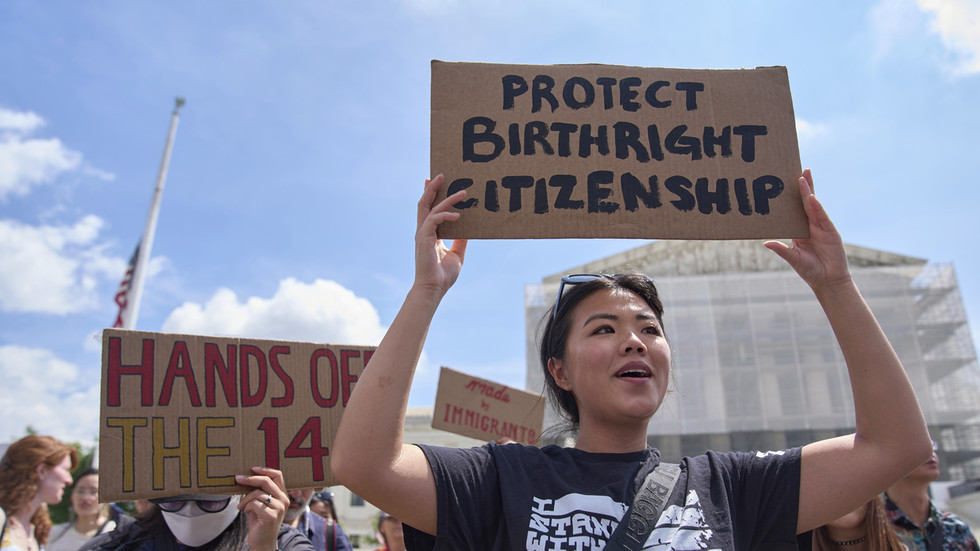The US president’s day one decree has faced repeated roadblocks in lower courts
US President Donald Trump’s administration has asked the Supreme Court to review the constitutionality of his executive order ending birthright citizenship for children whose parents entered the United States illegally, CNN reported Friday.
Signed on January 20, Trump’s first day back in office, the order directs federal agencies to deny citizenship to children born on US soil if neither parent is an American citizen or a lawful permanent resident. The policy has since faced a series of nationwide injunctions, with judges declaring it unconstitutional.
Solicitor General D. John Sauer, the administration’s top appellate lawyer, argued in the US Supreme Court filing that longstanding interpretations of the 14th Amendment have been “mistaken” and have had “destructive consequences,” according to the appeal obtained by CNN. He claimed lower courts had “undermined border security” by striking down “a policy of prime importance to the president.”
The administration is challenging rulings from a federal appeals court in San Francisco and a district court in New Hampshire, both of which blocked enforcement of the order in July. In one case, a coalition of Democratic-led states argued that the decree threatened billions in funding tied to citizenship status. In another, the American Civil Liberties Union (ACLU) won a class-action lawsuit halting the policy nationwide.
“This executive order is illegal, full stop, and no amount of maneuvering from the administration is going to change that,” ACLU attorney Cody Wofsy said after Friday’s filing. “We will continue to ensure that no baby’s citizenship is ever stripped away by this cruel and senseless order.”

The administration insists that the Supreme Court’s landmark 1898 ruling in US v. Wong Kim Ark, which established birthright citizenship for the children of immigrants, has been misapplied for decades. Sauer argued the precedent only applied to children of parents with “permanent domicile and residence” in the United States, not those who are in the country unlawfully or temporarily.
The Supreme Court has yet to docket the case, and it is unclear if four justices will vote to hear it. In June, the justices issued a procedural decision limiting the power of lower courts to block presidential policies, but left open other pathways for nationwide injunctions.
Read the full article here
